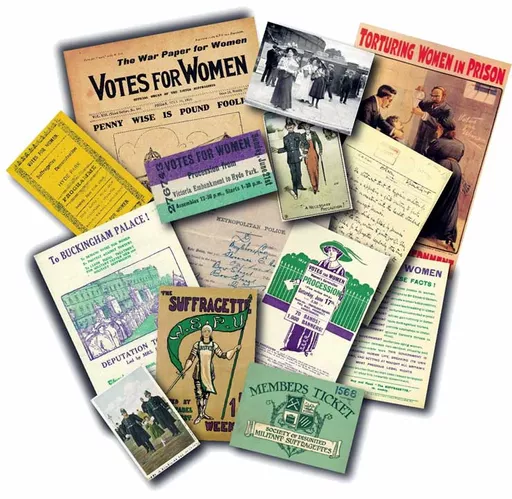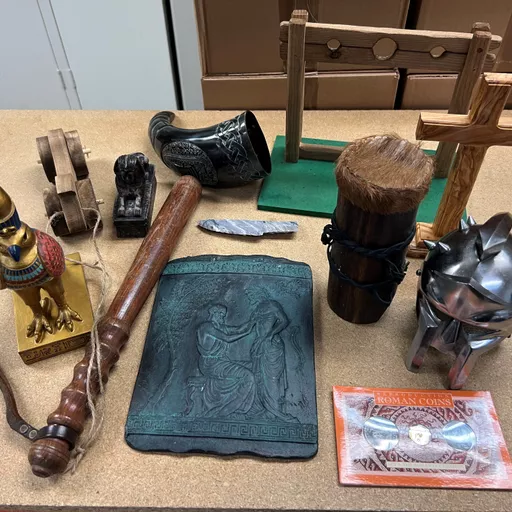Introduction to the Suffragettes
During the late 19th and early 20th centuries, women across various nations, notably Britain, were disenfranchised, meaning they lacked the fundamental right to vote. This dire situation meant that women had no voice in shaping the laws and policies that directly impacted their lives, including matters concerning governance and societal progress. Without the ability to cast their ballots, women were essentially excluded from participating in the democratic process, leaving them at a significant disadvantage compared to their male counterparts. This systemic inequality sparked a monumental movement known as the Suffragette movement, where courageous women embarked on a journey to challenge the status quo and fight for their inherent right to political representation.
What were the Suffragettes fighting for?
The Suffragettes passionately advocated for gender equality, specifically focusing on securing the right to vote for women. They firmly believed that women should be afforded the same rights and privileges as men, including the fundamental right to participate in the democratic process through voting. The crux of their argument rested on the principle of fairness and justice; if women were expected to abide by laws and contribute to society through taxation like their male counterparts, they asserted that it was only logical and equitable for women to also have a voice in shaping those laws and policies. In essence, the Suffragettes fought tirelessly to dismantle the pervasive societal notion that women were second-class citizens undeserving of political agency, and instead championed the idea that women's voices and perspectives were crucial for a truly representative and inclusive democracy.
Who were the key figures of the Suffragette movement?
Emmeline Pankhurst, alongside her daughters Christabel and Sylvia, emerged as pivotal figures in the Suffragette movement. Their unwavering dedication and fearless leadership propelled the movement forward, inspiring countless women to join the cause. In 1903, they established the Women's Social and Political Union (WSPU), a groundbreaking organization that spearheaded the campaign for women's suffrage in Britain. The WSPU quickly gained prominence as the leading force driving the fight for women's rights, employing bold tactics and unyielding determination to push the suffrage agenda forward. Emmeline Pankhurst, in particular, became synonymous with the Suffragette movement, earning widespread recognition for her impassioned speeches and courageous activism. Together, the Pankhurst family and their allies galvanized a diverse coalition of women from all walks of life, igniting a powerful movement that would ultimately transform the landscape of gender equality and democratic participation.




The methods of the Suffragettes
The Suffragettes employed a diverse range of tactics to garner attention and advocate for their cause. While they initially embraced peaceful forms of protest, such as organising rallies, marches, and engaging in civil disobedience, they eventually adopted more radical strategies to escalate their campaign. One such method involved hunger strikes, wherein Suffragettes would refuse food to protest their unjust treatment and demand political recognition. This extreme measure often garnered significant media attention and sparked public outcry, amplifying the Suffragettes' message and applying pressure on authorities to address their grievances. Additionally, Suffragettes would chain themselves to railings outside government buildings and public spaces as a symbolic gesture of resistance, highlighting the barriers preventing women from participating in the democratic process. These bold and unconventional tactics were instrumental in galvanising support for the Suffragette movement, challenging societal norms, and ultimately paving the way for progress towards women's suffrage.
Challenges faced by the Suffragettes
Despite their noble cause, the Suffragettes encountered formidable opposition from various quarters, including the government and broader society. Their relentless pursuit of women's suffrage provoked strong resistance, leading to a host of challenges and adversities.
The government, entrenched in traditional patriarchal structures, staunchly opposed granting women the right to vote. Officials viewed the Suffragettes' demands as a threat to the existing social order and were unwilling to concede to their demands. Consequently, Suffragettes often faced harsh treatment from law enforcement, including arrest, imprisonment, and harsh penalties.
Moreover, the Suffragettes encountered widespread societal backlash, with many individuals deriding their activism and dismissing their cause as radical or unnecessary. They were subjected to ridicule, slander, and even physical violence from those who opposed their efforts to challenge the status quo.
Despite these formidable obstacles, the Suffragettes remained undeterred in their quest for equality and persisted in their advocacy through resilience and determination. Their willingness to endure hardship and sacrifice for the greater good served as a testament to their unwavering commitment to securing women's rights and reshaping the course of history.
Successes of the Suffragette movement
The Suffragette movement achieved remarkable success despite the formidable obstacles it encountered along the way. One of the most significant milestones came in 1918 with the passage of the Representation of the People Act, a historic piece of legislation that marked a monumental victory for the Suffragettes and women's rights advocates.
The Representation of the People Act extended the right to vote to a considerable number of women in Britain, albeit with certain restrictions. Specifically, it granted voting rights to women over the age of 30 who met certain property qualifications or were married to men who met such qualifications. While this enfranchisement was not universal and fell short of the Suffragettes' ultimate goal of complete equality, it nevertheless represented a crucial step forward in the struggle for women's suffrage.
The passage of the Representation of the People Act was a testament to the tireless efforts and unwavering determination of the Suffragettes, who had tirelessly campaigned for decades to secure political recognition and equal rights for women. Their resilience in the face of adversity, coupled with their strategic activism and unwavering commitment to justice, played a pivotal role in shaping the course of history and advancing the cause of gender equality.
Although there was still much work to be done in the fight for full suffrage and gender equality, the passage of the Representation of the People Act marked a significant triumph for the Suffragette movement and paved the way for further progress in the ongoing struggle for women's rights.




Why is it important to learn about the Suffragettes?
Understanding the legacy of the Suffragettes holds immense importance in our collective historical consciousness. Their courageous struggle for women's suffrage serves as a poignant reminder of the power of activism and the significance of standing up for what is right, even in the face of formidable challenges.
By studying the Suffragettes, we gain valuable insights into the complexities of social and political change, as well as the enduring relevance of grassroots movements in shaping the course of history. Their unwavering commitment to equality and justice inspires us to challenge injustice and advocate for positive change in our own communities.
Learning about the Suffragettes fosters a deeper appreciation for the progress that has been achieved in the fight for gender equality, while also highlighting the ongoing struggles that persist today. It prompts us to reflect on the rights and freedoms that we often take for granted and encourages us to remain vigilant in protecting and expanding those rights for future generations.
Ultimately, the story of the Suffragettes serves as a beacon of hope and empowerment, reminding us that ordinary individuals have the capacity to effect extraordinary change through collective action and persistent determination. Their legacy continues to resonate today, inspiring activists around the world to work towards a more just, equitable, and inclusive society.
Activities and resources for teaching about the Suffragettes in primary school
There are many resources available for teaching children about the Suffragettes, including books, documentaries, and interactive activities. These resources can help children understand the Suffragettes' struggle and why their fight for women's rights was so important. We, Here at Starbeck Educational Resources, offer a wide variety of suffragettes artefacts and memorabilia that is perfect for teaching the younger generation of this important period in history. Please take a look on our website or drop us an email if you have any questions.
Celebrating the achievements of the Suffragettes in today's world
The accomplishments of the Suffragettes serve as an era of inspiration and empowerment, urging us to reflect on their amazing legacy and consider how we can honour their contributions in the contemporary context.
One way to celebrate the achievements of the Suffragettes is by educating ourselves to the ongoing pursuit of gender equality. Despite the progress that has been made since their time, gender disparities still persist in various facets of society, including politics, economics, and education. By advocating for policies and initiatives that promote gender equity and dismantle systemic barriers, we honor the Suffragettes' vision of a more just and inclusive world.
We can celebrate the Suffragettes by actively engaging in the democratic process and ensuring that everyone has the opportunity to participate fully and meaningfully. This includes advocating for voter rights, supporting marginalised communities in exercising their political agency, and fostering a culture of civic engagement and empowerment.
Moreover, we can pay tribute to the Suffragettes by amplifying the voices of women and marginalised groups in our communities and workplaces, championing their contributions, and striving to create environments where all individuals are valued and respected.


















